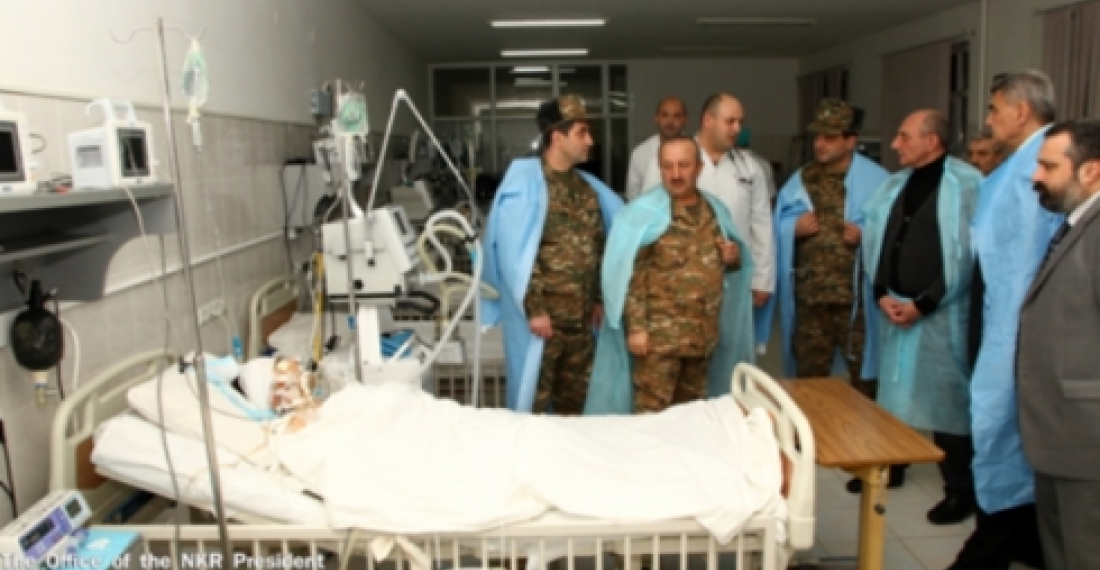The Karabakh conflict continues to claim the lives of young soldiers, mainly conscripts, who face each other daily across the line of contact that separates Armenian and Azerbaijani forces. The latest incident on Thursday claimed the lives of three Karabakh Armenian soldiers. Several more were wounded and some are in very critical conditions. It is not clear if there were also casualties on the Azerbaijani side.
The incident happened on Thursday (19 March). Both sides accuse each other of instigating the incident.
On Friday, the President of the self-declared Nagorno-Karabakh Republic, Bako Sahakian, visited the wounded Karabakh Armenian soldiers in a military hospital in Stepanakert, the capital of the territory. According to the President's website "The President underlined that the whole Armenian nation was proud of their hero soldiers, who continue the deeds of the older generation and selflessly defend the Motherland's borders with flying colors."
source: commonspace.eu
photo: The President of the self declared Nagorno-Karabakh Republic, Bako Sahakian, visiting wounded Karabakh Armenian soldiers in a hospital in Stepanakert on Friday, 20 March 2015. (Picture courtesy of the Press Service of the NKR President).







